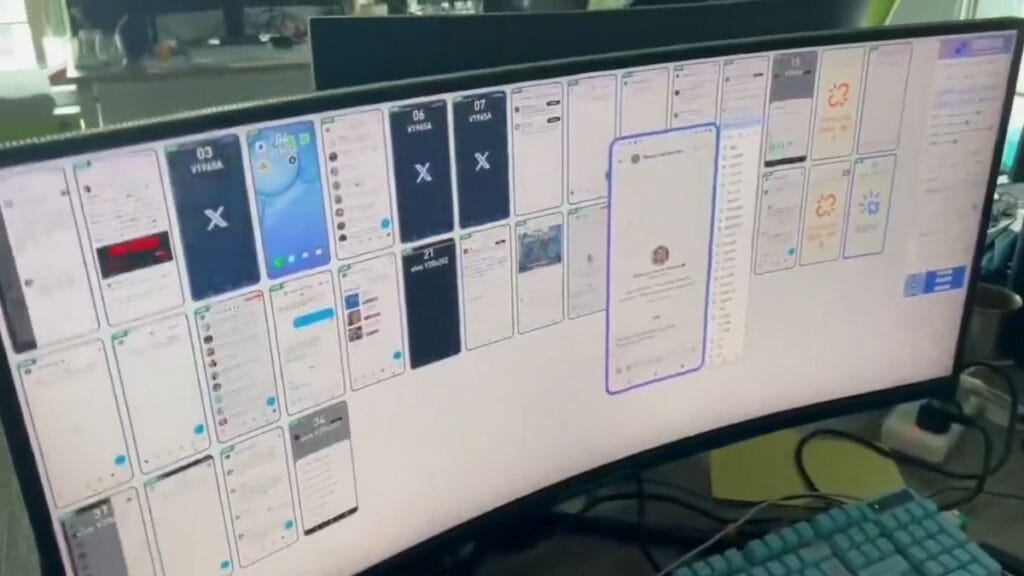Cluely AI burst onto the tech scene with what many saw as a shocking ad campaign. But beneath the controversy lies a tool that asks tough questions about how we work, learn, and compete in an AI-powered world.
The Tool Behind the Talk
Cluely AI isn’t the dating research tool portrayed in its viral ad. It’s an AI assistant designed to help users “cheat” on tasks ranging from job interviews to sales calls. The founder built it after growing tired of LeetCode interviews at big tech companies – tests he felt didn’t truly measure job skills.
The tool works by watching your screen, listening to your conversations, and feeding you answers in real time. This gives users an edge in situations where quick thinking and perfect recall matter.
What makes Cluely stand out is its bold stance. Unlike other AI tools that hide behind terms like “assist” or “enhance,” Cluely openly embraces that it helps users “cheat” – a term that sparked fierce debate online.
Why Tech Workers Are Paying Attention
For tech professionals facing grueling interview processes, Cluely offers a way to bypass what many see as broken hiring systems. The tool’s success ($5 million in funding) shows it struck a nerve in an industry where assessment methods often fail to match actual job duties.
Developers who spend years mastering practical skills find themselves rejected over abstract puzzles they’ll never use on the job. Cluely gives them a way to focus on what matters – solving real problems – rather than memorizing textbook answers.
Product managers and UX designers might also find value in such tools during high-stakes client presentations or when faced with unexpected questions from stakeholders.
The Ethics Question That Matters
The typical ethical debate about AI tools focuses on whether using them counts as “cheating.” But this misses a more critical point: our work world is changing so fast that what counts as “fair play” is being redefined daily.
Ten years ago, looking up information on your phone during a meeting might have seemed sneaky. Today, it’s expected. The real question isn’t whether using AI tools is ethical, but whether our current assessment systems measure what truly matters in a world where AI assistance is becoming standard.
When everyone has access to instant knowledge, what skills become valuable? Cluely’s founder argues that asking the right questions becomes more important than memorizing facts – a skill that current hiring processes rarely test.
Beyond Job Interviews
While Cluely gained notice for helping with tech interviews, its broader applications span many fields:
Sales professionals can use similar tools to pull up customer data or product specs during calls without awkward pauses.
Small business owners with limited staff can punch above their weight in negotiations against larger firms.
Content creators can check facts or get ideas without breaking their creative flow.
For IT teams tasked with picking new tech solutions, these tools provide quick comparisons during vendor meetings.
The Coming AI Glasses Connection
The controversy around Cluely looks small when we consider what’s coming next. Google and Meta are both working on AR glasses that will bring real-time AI assistance into everyday life. Soon, asking your glasses for help during conversations will be as normal as checking your watch.
Companies that block tools like Cluely now may find themselves unprepared when glasses-based AI becomes widespread. Forward-thinking firms are already updating their policies and training methods to work with, rather than against, these new aids.
What This Means For You
If you’re still trying to compete purely on memorized knowledge, you face an uphill battle. The most successful professionals will be those who master working with AI tools – asking better questions, spotting weak answers, and knowing when human judgment should override machine suggestions.
For business leaders, this shift means rethinking how you assess job candidates and team members. When everyone has access to the same knowledge base, what makes someone truly valuable? How do you test for skills like creative problem framing or critical thinking?
For individual workers, tools like Cluely offer a chance to focus on higher-value work instead of routine facts and figures. The key is using these tools to amplify your unique human skills, not replace them.
Preparing For The Leverage Economy
Cluely’s manifesto states: “The future won’t reward effort. It will reward leverage.” This gets at something many tech workers already know – working harder isn’t enough when others work smarter with better tools.
What does this mean for your career? Start by asking:
What tasks in my role could be done better with AI assistance?
Which of my skills will still matter when everyone has AI help?
How can I become better at directing AI tools rather than competing with them?
The smartest companies are already changing how they work, moving from valuing pure knowledge to valuing knowledge curation and application. Teams that learn to work alongside AI tools will outpace those that either reject them or rely on them too much.
Where We Go From Here
The story of Cluely AI isn’t just about one tool or one viral ad. It’s about the shift happening across all knowledge work. As AI makes information access cheap and fast, the value moves to how we use that information.
Try asking yourself: If everyone in your field had perfect recall and instant access to all facts, what would still make you valuable? The answer likely involves judgment, creativity, ethics, and human connection – areas where machines still can’t match us.
Tools like Cluely will keep coming, each more powerful than the last. Instead of fighting this wave, smart professionals will learn to surf it.
What AI tool do you think will change your field next? Think about how you might use it to focus on the parts of your job that truly need human touch.
